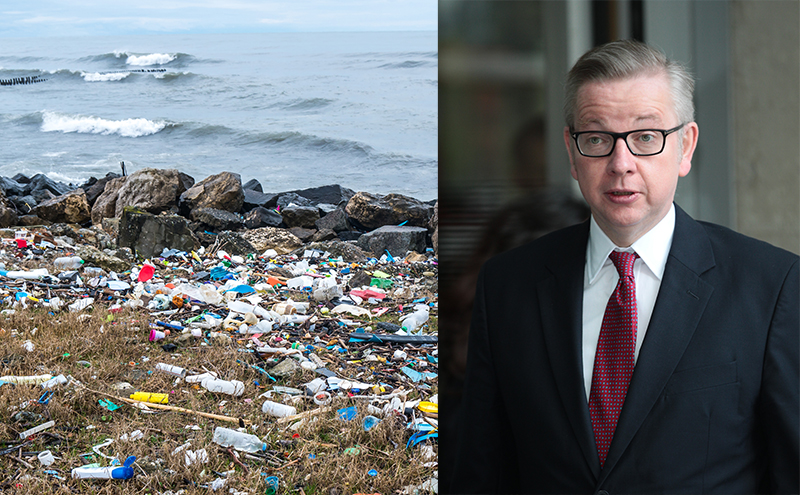DEFRA unveils plans for potential UK-wide scheme

WITH Scotland’s deposit return scheme still under consultation, the UK Government has published its own DRS plans.
The UK Department for Environment, Food & Rural Affairs (DEFRA) has unveiled its ‘Resources and waste strategy for England’, which states that it plans to have a Deposit Return Scheme active in England by 2023. DEFRA has also revealed it would like to see the plan apply to the whole of the UK.
Subject to consultation, the scheme will apply to single-use drinks containers, but proposals also including disposable cups filled at the point of use, including coffee cups and those used in slushy machines.
The UK Government also said that the DRS scheme could include glass bottles, a proposition that Miles Beale, chief executive of the Wine and Spirit Trade Association, said left him “unconvinced.”
“About 70% of glass packaging is recycled against a target of only 60%. Introducing DRS for glass drinks containers flies in the face of this track record – and could undermine achievements to date”, he said.
“Moreover for wine and spirit drinks, the vast majority of which are consumed in the home, there is no evidence to suggest that glass drinks containers are contributing to litter.”
While the English scheme is at an early stage, the strategy states that the UK Government’s “preference” is to adopt a UK-wide approach to DRS.
However, the Scottish Government expressed reservations about a UK-wide scheme in its DRS consultation paper, stating that the benefits for Scotland of any scheme must be “maximised”.
It warned that there may be a “difference in ambition” between Scotland and the rest of the UK, as the Scottish Government may want to recycle more materials.
The Scottish Government also made it clear that it wanted a Scottish system administrator to retain control of material collected in Scotland, rather than having it aggregated. It remains to be seen if the UK Government would support such an idea.
Reverse Vending manufacturer TOMRA said that it “welcomed” the UK DRS strategy, and that it was “very encouraging that the UK Government has followed in the footsteps of the Scottish Government.”
Truls Haug, managing director for TOMRA Collection Solutions UK & Ireland said: “The importance of a strong circular economy has never been clearer. We look forward to the start of the consultation in England in early 2019 and to the recommendations coming from the comprehensive consultation completed in Scotland.”
Other plans within the UK Government’s strategy include introducing UK-wide producer responsibility schemes, where producers “bear the full net cost of managing their products at the end of their life.”
This kind of scheme — which is currently in place for end of life vehicles, batteries and waste electrical and electronic equipment (WEEE) — could see producers expected to fund the collection, recycling, and enforcement costs of their material.
Financial incentives could also be introduced to encourage firms to produce
products which are easy to reuse, repair or recycle and penalty for those that are not, with the system expected to be operational by 2023.
Any manufacturer using plastic packaging that contains less than 30% recycled plastic will also have to pay an extra tax, starting from April 2022 if the proposals go ahead. Bottled water companies and retailers would also be encourage to provide more public refill points
The UK Government is also considering an outright ban on certain single-use plastics, including plastic straws, stirrers and cotton buds.
Speaking at the launch of the proposals, Environment secretary Michael Gove said: “Our strategy sets out how we will go further and faster, to reduce, reuse, and recycle. Together we can move away from being a ‘throw-away’ society, to one that looks at waste as a valuable resource.
“We will cut our reliance on single-use plastics, end confusion over household recycling, tackle the problem of packaging by making polluters pay, and end the economic, environmental and moral scandal that is food waste.
“Through this plan we will cement our place as a world leader in resource efficiency, leaving our environment in a better state than we inherited it.”




















